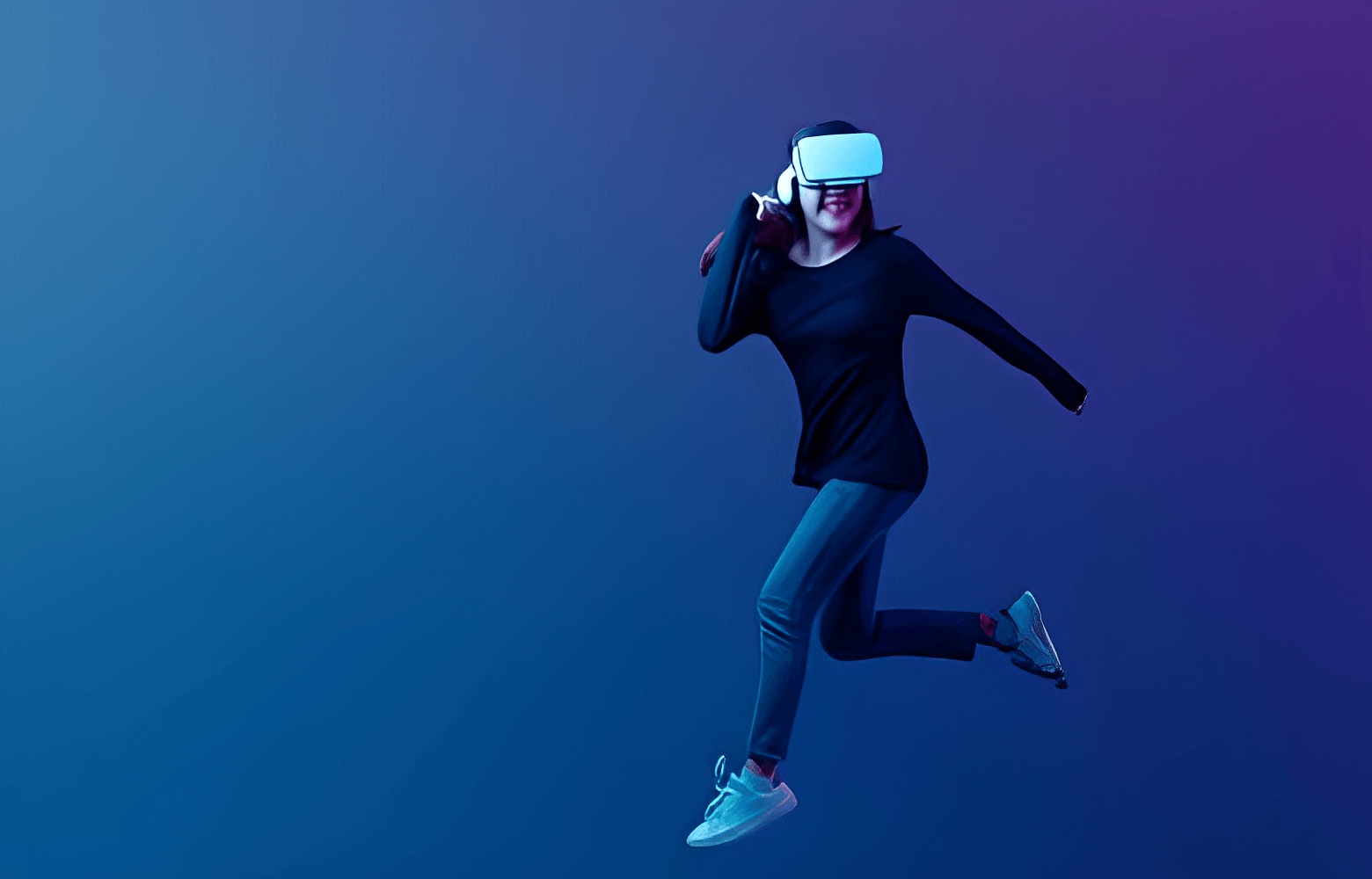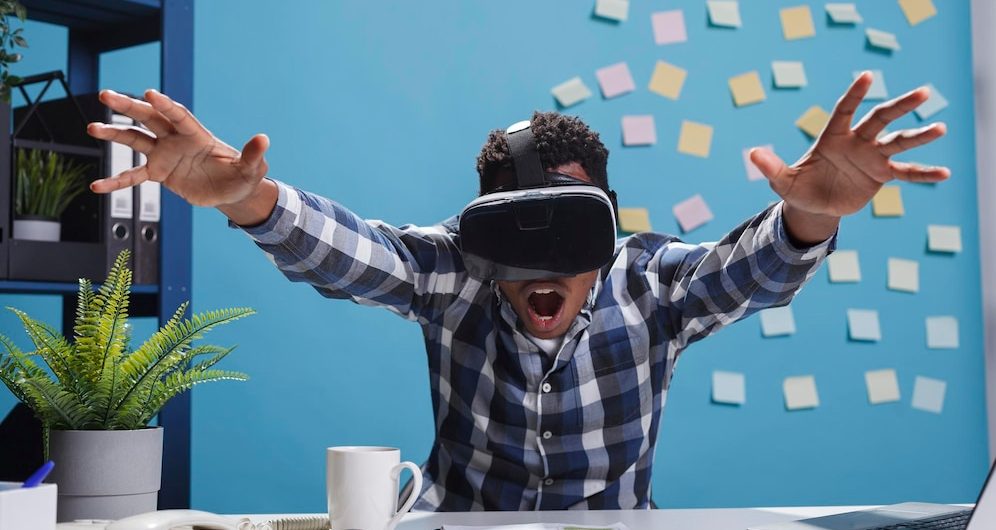Virtual Reality (VR) has transcended its initial identity as a gaming technology, now permeating various industries and reshaping our understanding of reality. Let’s embark on a journey into the Metaverse, exploring the multifaceted impact of VR on entertainment, education, healthcare, and beyond.
I. Introduction
Definition of the Metaverse
The Metaverse, a term coined by Neal Stephenson in his 1992 science fiction novel “Snow Crash,” refers to a collective virtual shared space, created by the convergence of physical and virtual reality. It is a space where users interact with each other and digital elements in real-time.
Evolution of VR beyond gaming
Once relegated to the realm of gamers, VR has evolved into a versatile technology with applications far beyond the gaming industry. Its immersive nature opens doors to endless possibilities, transforming the way we experience the world.
Overview of the article
This article delves into the transformative power of VR across industries, exploring how it influences entertainment, education, and healthcare. Additionally, we’ll discuss the immersive experiences offered by VR, cutting-edge applications, and the ethical considerations surrounding the Metaverse.
II. Transforming Industries
Entertainment
VR in gaming
Gaming in VR has reached new heights, providing users with unparalleled experiences. From realistic simulations to interactive storytelling, VR gaming is redefining the traditional gaming landscape.
Virtual concerts and events
Entertainment extends beyond gaming, with VR enabling virtual concerts and events. Attendees can experience the thrill of live performances from the comfort of their homes, breaking down geographical barriers.
Education
Virtual classrooms
The educational landscape is evolving with VR’s integration into virtual classrooms. Students can immerse themselves in historical events, explore distant places, and engage in interactive learning experiences.
Training simulations
VR proves invaluable in professional training, offering realistic simulations for various industries. From pilots to surgeons, immersive training experiences enhance skill development and decision-making.
Healthcare
Medical training in VR
The medical field benefits from VR with realistic medical training simulations. Aspiring healthcare professionals can practice surgeries and procedures in a risk-free virtual environment.
Therapy and rehabilitation
VR aids in therapy and rehabilitation, providing immersive environments for patients. This therapeutic application extends to mental health treatments, offering innovative approaches to healing.
III. Immersive Experiences
Definition of immersion
Immersion is a key element of VR, creating a sense of presence in a virtual environment. This heightened level of engagement enhances the overall user experience.
Examples of immersive VR experiences
Virtual travel
VR allows users to embark on virtual journeys, exploring destinations worldwide without leaving their homes. This immersive travel experience provides a glimpse into different cultures and landscapes.
Real estate exploration
Prospective buyers can tour properties virtually, experiencing the layout and ambiance before physically visiting. This application transforms the real estate industry, making property exploration more accessible.
IV. Cutting-Edge Applications
VR technology advancements
Hardware innovations
Continuous advancements in VR hardware, such as headsets and controllers, contribute to a more realistic and comfortable user experience. These innovations drive the evolution of VR technology.
Software developments
Cutting-edge software applications, including AI integration and realistic graphics, enhance the capabilities of VR. Developers strive to create more engaging and lifelike virtual worlds.
V. Ethical Considerations
Privacy concerns in the metaverse
The immersive nature of the Metaverse raises privacy concerns. As users spend more time in virtual spaces, protecting personal information becomes crucial to prevent unauthorized access and data breaches.
Impact on social interactions
While VR facilitates virtual social interactions, concerns arise about its impact on real-world relationships. Striking a balance between virtual and physical connections is essential for maintaining healthy social dynamics.
Addressing addiction issues
The immersive nature of VR may lead to addictive behaviors. Recognizing and addressing potential addiction issues is crucial to ensuring the responsible use of VR technology.
VI. Stepping into the Metaverse
Current state of the metaverse
The Metaverse is rapidly evolving, with major tech players investing in its development. Virtual worlds are becoming more interconnected, setting the stage for a transformative shift in how we perceive and interact with digital spaces.
Predictions for the future
As technology advances, the Metaverse is expected to become even more integral to our daily lives. Innovations in VR and related technologies will continue to reshape industries and create new possibilities.
Challenges and opportunities
While the Metaverse presents exciting opportunities, it also comes with challenges. Balancing innovation with ethical considerations, addressing privacy concerns, and ensuring accessibility are key challenges that need thoughtful solutions.
Conclusion
Stepping into the Metaverse is a journey filled with endless possibilities. VR’s impact on entertainment, education, and healthcare is profound, ushering in a new era of immersive experiences. As we navigate this digital frontier, it is essential to address ethical considerations and challenges to ensure a responsible and inclusive Metaverse.
Unique FAQs
- Is VR only for gamers? No, VR has expanded beyond gaming and is transforming various industries, including entertainment, education, and healthcare.
- How does VR impact education? VR enhances education by providing virtual classrooms and realistic training simulations, offering immersive learning experiences.
- What are the privacy concerns in the Metaverse? The immersive nature of the Metaverse raises concerns about the protection of personal information and the potential for unauthorized access.
- Can VR be addictive? Yes, the immersive nature of VR can lead to addictive behaviors. It is crucial to recognize and address potential addiction issues responsibly.
- What does the future hold for the Metaverse? The future of the Metaverse holds exciting possibilities, with advancements in technology reshaping industries and creating new opportunities.




